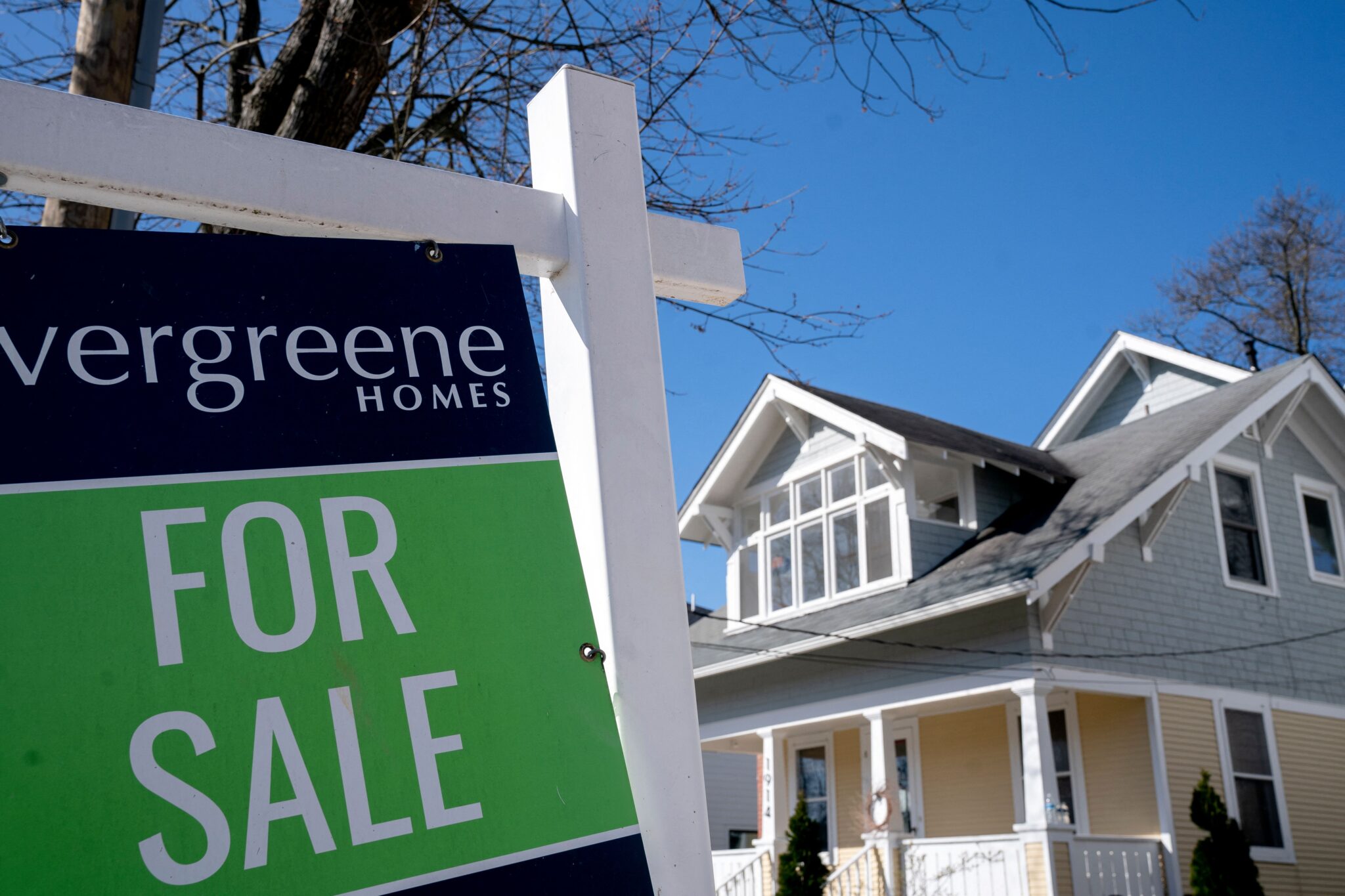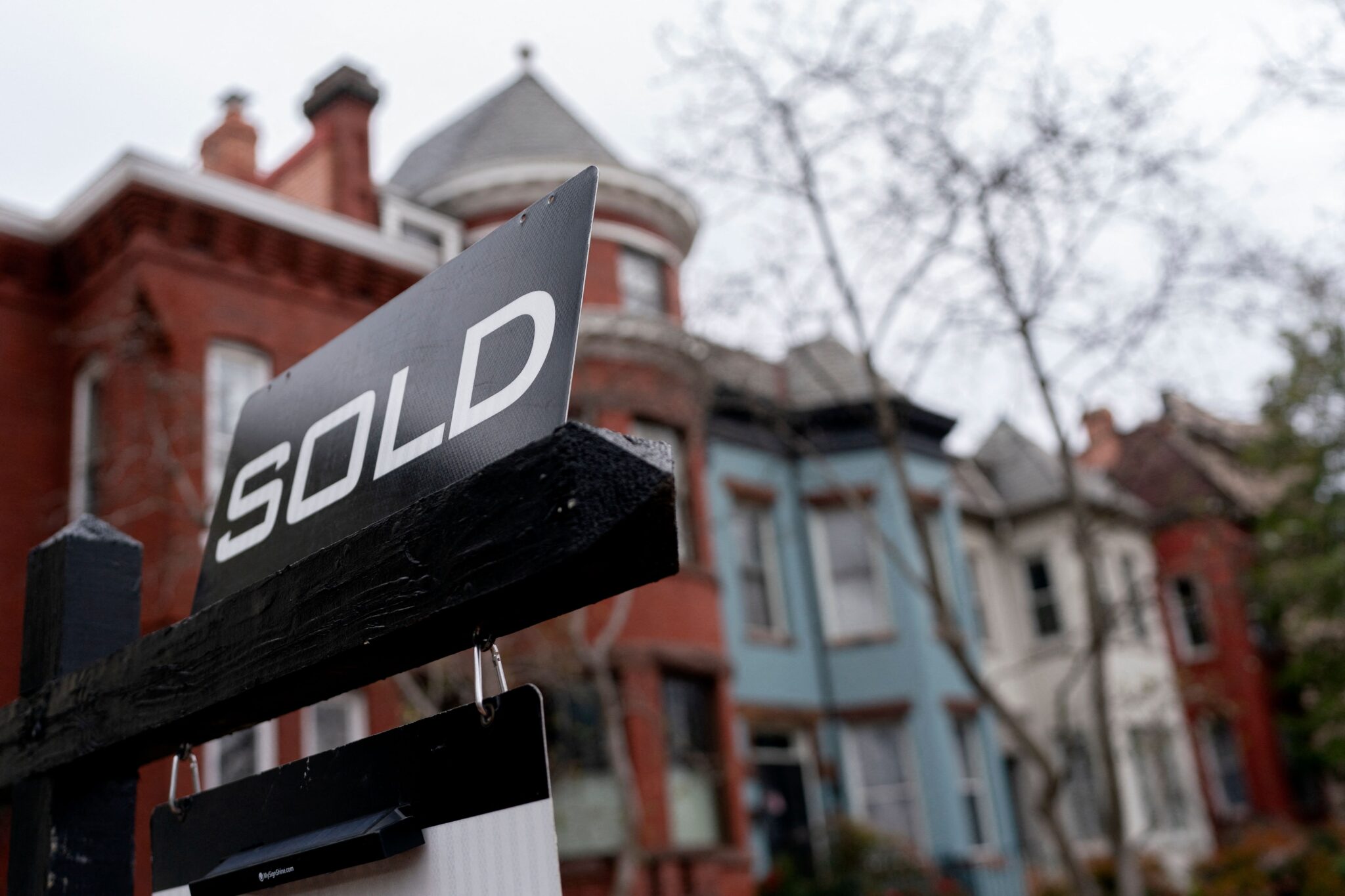A man walks along a street in a neighborhood of single-family homes in Los Angeles, Calif., on July 30, 2021. (Frederic J. Brown/AFP via Getty Images)
The average American is always looking for ways to save money—from markdowns on a dozen eggs to deductions on realtor commissions when they sell their homes. Over the past few years, discount commission brokerages have been popping up all over the country, guaranteeing commissions as low as 1.5 to 3.0 percent on each home sale.
But how much money can the average home seller actually save, and do they always get the highest offers for their properties?
Redfin, UpNest, SimpleShowing, and Prevue are just a few of the real estate firms now offering low-rate commissions for home sellers, while others such as Houwzer offer a flat rate of $5,000 per sale. Most of these firms also require the home seller to pay the buyer’s agent’s commission.
Ideal Agent has been blanketing television screens across the nation lately, promising sellers a 2 percent commission fee on home sales, as opposed to the average 6 percent fee charged by most real estate agents. Founded in 2016 in Tampa, Florida, the company reports its cadre of agents are in the top 1 percent of real estate professionals across the nation, and that they can save home sellers thousands of dollars. Their website also boasts a five-star rating from Trustpilot.
Consumer testimonials on their website trumpet great service and huge savings, but one might wonder why real estate agents would agree to such a low commission rate when their colleagues are getting at least 4 percent more per sale.
Ideal Agent founder and CEO Steve Johnston told The Epoch Times that it’s all due to the volume of high-qualified leads.
“We refer clients out to the agents only when they’re ready to sell, and we have the best conversions in the industry,” Johnston said. “We’re handing them a listing and taking all of their marketing work and expenses away.”
Johnston added that the company does extensive research on its agents before allowing them to join Ideal Agent.
“They can’t just join our network—they must be vetted and meet our qualifications. In fact, 90 percent of those we interview don’t qualify,” he said.
The company closes on more than 11,000 homes per year, and many of the homes that are sold top the U.S. median selling price of $450,000. Using the example of a home selling for $450,000, the seller would pay the Ideal Agent a $9,000 commission at 2 percent, as opposed to $27,000 at 6 percent for the average real estate agent, for a total savings of $18,000.
This scenario would be possible if a buyer approaches the seller without an agent.
In a case in which a buyer is represented by an agent, the seller also is responsible for paying the buyer’s agent fee of 2.5 percent, which on a $450,000 home is $11,250. That fee is in addition to the $9,000 seller’s commission, for a total of $20,250. In this instance, the home seller would still save $6,750.

A For Sale sign is displayed in Falls Church, Virginia, on April 2, 2022. (Photo by Stefani Reynolds / AFP) (Photo by STEFANI REYNOLDS/AFP via Getty Images)
“We take the heavy lifting off the advertising for these agents, and while they’re receiving only 2 percent commission, they’re still saving a huge amount of money in marketing costs, Johnston said. “They also want to treat our clients well because it means more referrals for them.”
Currently, Ideal Agent is working with about 3,000 agents throughout the country from national firms such as Coldwell Banker, Keller Williams, Century 21, Sotheby’s, Compass, Better Homes & Gardens, and many others.
Ideal Agent’s service is free for homeowners who want to sell or buy properties, connecting them with both buyers’ and sellers’ agents.
“Even if someone is selling in New Jersey and moving to Florida, we can put them in touch with agents in both areas. Our vision is to create a seamless online real estate transaction,” Johnston said. The company also can suggest mortgage, moving, and title insurance firms.
Traditional Brokers
However, veteran real estate professionals such as Dottie Herman, vice chair of Douglas Elliman, remain wary of these discount brokerages. Douglas Elliman is a $51.2 billion firm with 6,600 agents in 115 locations throughout the United States.
“I’ve been in this business for over 30 years, and if I were to sell my own home, I’d still use a traditional broker,” she told The Epoch Times. “Home sellers think they’ll save money by paying a lower sales commission, but what they save in commissions they could lose on low-ball listing prices. You want to be sure you have an agent who knows how to properly price homes and is able to negotiate a deal.”
Herman also disagrees with the claim that low-commission real estate firms handle all of the marketing for agents.
“The top brokers of every company know each other, and you just can’t compete with having a broker to spread the word and promote your home,” she said. “Plus, homeowners don’t necessarily know if someone from a low-commission firm is qualified to handle their sales. Someone can make a nice appearance, but that doesn’t mean anything.”
She noted that millennials are now the largest population of homebuyers and sellers, and most tend to use traditional real estate agents.
“These agents know how to prepare everything, are on call for their clients, and can help them along the way with everything from attorneys and mortgages to title insurance,” Herman added. “These realtors are the glue that keeps everything together.”

A sold sign is posted in front of a house in Washington, DC, on February 26, 2022. (Photo by Stefani Reynolds / AFP) (Photo by STEFANI REYNOLDS/AFP via Getty Images)
Typically, real estate agents are also required to share part of their commission with their brokerage, which would leave them with even less than the 2 percent they receive from the sale. Herman also cautions home sellers to be aware of any hidden costs beyond the 2 percent commission.
Rachel Adler, managing broker of RAREnorthwest | Windermere in Seattle, agrees with Herman’s assessments. With 21 years in the business, Adler was also the 2022 president of the Seattle King County Realtor Association.
“Anytime a market shifts, there’s going to be a company out there that feels like it’s time to build a better mousetrap,” she told The Epoch Times. “In our business, there’s room for every business model, but the low seller’s commission model may not be right for everyone.”
Like Herman, Adler is a fan of the more traditional real estate models that typically include high levels of service that can come with a higher price tag.
“When you’re a broker with a lot of experience, you know what good marketing looks like,” she said. “It’s so important that the home is staged property and well-presented. It also takes a lot of strategy, negotiating skills, and a good reputation in the community to sell a home.”
Similar to the East Coast, the 6 percent sales commission for listing agents is standard on the West Coast as well.
“It’s sometimes frustrating as a broker when we’re interviewing a seller who wants us to match the percentage of the discount brokerage,” Adler said. “We want to work with these home sellers and try to explain that we offer more services. We can’t change our service model and charge less commission.”
Included in the many services a conventional brokerage will offer are pre-inspections, home staging, photography, and video tours, in addition to listing the property on the local multiple-listing service.
Johnston insists his Ideal Agents have all the necessary skills to ensure the deal closes with sellers getting top dollar for their homes.
“Our business model is becoming more prevalent,” he said. “In return for offering lower sales commissions, our agents get a steady stream of business. We have a lot of very happy real estate agents in our network.”
He also maintains the model is easier for the homeowner as well.
“People are skeptical at first, and they think it’s too good to be true. But when they meet with our realtors, they are blown away,” he said. Johnston adds that the marketing efforts result in a large pool of potential buyers.
Despite the growing number of discount brokerages entering the scene, Adler indicated she and her colleagues in the traditional real estate world aren’t worried.
“I think competition is healthy, and I believe there’s room for everyone in our market.”


